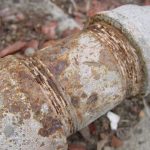The foul odor emanating from sewer vents can be an unpleasant and persistent issue for homeowners. These odors are not only unpleasant but can also indicate underlying problems in the plumbing system. However, addressing this problem effectively requires a systematic approach and understanding of the causes. In this guide, we will delve into the various methods and strategies to stop sewer smell from vent pipes, ensuring a fresh and odor-free environment in your home.
Understanding the Causes
Understanding these causes is the first step towards effectively addressing sewer smells from vent pipes. By identifying the underlying issues contributing to the odors, homeowners can implement appropriate solutions to eliminate the problem and ensure a clean and odor-free living environment. Blocked Vent Pipes: Vent pipes are crucial components of plumbing systems that allow sewer gases to escape to the outside air. However, if these pipes become blocked or obstructed, either by debris, dirt, or even animal nests, the flow of air is impeded. This obstruction can cause sewer gases to back up into the plumbing system and eventually into the living spaces of a home.
- Buildup of Organic Matter: Over time, organic matter such as grease, food particles, hair, and soap scum can accumulate within vent pipes. This buildup provides an ideal environment for bacteria to thrive, leading to the production of foul-smelling gases. Additionally, organic matter can become trapped in bends or elbows of the vent pipe, exacerbating the issue.
- Leaks and Cracks: Any leaks or cracks in the vent pipes can allow sewer gases to escape into the home. These leaks may occur due to age-related deterioration, corrosion, or improper installation. Even minor leaks can result in noticeable odors, especially if located near living spaces or areas with poor ventilation.
- Sewer Line Issues: Problems within the main sewer line, such as blockages, leaks, or damaged pipes, can also contribute to sewer smells. If the main sewer line is compromised, it can affect the entire plumbing system, including vent pipes. In such cases, odors may be more widespread and persistent, requiring thorough inspection and repair.
- Lack of Maintenance: Neglecting regular maintenance of the plumbing system, including vent pipes, can exacerbate odor issues over time. Without proper cleaning and inspection, debris and organic matter can accumulate, leading to blockages and odors. Routine maintenance helps identify and address potential problems before they escalate.
- Environmental Factors: External factors such as weather conditions, temperature changes, and nearby construction activities can also impact sewer smells from vent pipes. For example, strong winds or atmospheric pressure changes may affect the flow of air within vent pipes, potentially causing odors to enter the home.
- Dry P-Traps: P-Traps, which are found beneath sinks, showers, and other fixtures, are designed to hold water to prevent sewer gases from entering the home. However, if these traps dry out due to infrequent use or evaporation, they can no longer effectively block odors. This commonly occurs in guest bathrooms or unused areas of the house, where water may evaporate from the traps over time.
- Improper Ventilation: Inadequate ventilation within the plumbing system can contribute to the buildup of sewer gases and exacerbate odor problems. Vent pipes are essential for allowing proper airflow and pressure equalization within the plumbing system. If ventilation is insufficient or compromised, it can lead to stagnation of air and an increase in foul odors.
- Structural Damage: Structural damage to the building, such as cracks in walls or foundations, can provide pathways for sewer smells to enter the home. Vent pipes passing through these damaged areas may allow odors to infiltrate living spaces. Identifying and repairing structural damage is crucial for preventing odor infiltration and maintaining the integrity of the building envelope.
- Improper Installation: Incorrect installation of vent pipes, including improper sizing, placement, or connections, can lead to ventilation issues and sewer odor problems. Vent pipes should be installed according to building codes and manufacturer guidelines to ensure optimal performance. In cases of improper installation, professional assessment and corrective measures may be necessary to resolve odor issues.
- Sewer Gas Composition: The composition of sewer gases, which typically include methane, hydrogen sulfide, ammonia, and other compounds, can vary depending on factors such as sewage composition, temperature, and microbial activity. Certain compounds, such as hydrogen sulfide, are notorious for their foul odor, contributing to unpleasant smells from vent pipes. Understanding the composition of sewer gases can aid in developing effective odor mitigation strategies.
- Chemical Interactions: Chemical interactions within the plumbing system, such as reactions between cleaning products, sewage, and pipe materials, can produce volatile compounds and odors. For example, mixing bleach with certain acidic cleaners can generate toxic gases and foul odors. Using incompatible chemicals or failing to properly rinse plumbing fixtures can contribute to sewer smell issues. Awareness of potential chemical interactions and proper usage of cleaning products can help prevent odor problems.
- Soil Movement: In regions with expansive soils or frequent seismic activity, soil movement can cause shifts in the ground beneath the home. These movements may disrupt or damage vent pipes, leading to leaks, blockages, or misalignments. As a result, sewer gases may escape from compromised vent pipes and enter the living spaces. Monitoring soil conditions and addressing any structural shifts promptly can help mitigate sewer odor issues associated with soil movement.
- Septic System Malfunction: Homes with septic systems rely on vent pipes to release gases generated by the decomposition of waste within the system. If the septic system malfunctions or becomes overloaded, it can produce excess gases that may escape through vent pipes. Issues such as clogged drain fields, tank leaks, or insufficient bacterial activity can contribute to foul odors emanating from vent pipes. Regular maintenance and timely repairs of septic systems are essential for preventing odor problems.
Methods to Stop Sewer Smell From Vent Pipes
Stopping sewer smells from vent pipes requires a combination of preventive measures and targeted solutions to address specific issues. Here are several effective methods to eliminate sewer smells from vent pipes:
- Routine Cleaning and Maintenance: Regularly clean vent pipes to remove any buildup of debris, organic matter, or sediment that may contribute to foul odors. Use a plumbing snake or a high-pressure water jet to dislodge and flush out accumulated material. Additionally, schedule routine maintenance inspections to identify and address any potential issues before they escalate.
- Clear Blockages: Inspect vent pipe openings for any visible obstructions, such as bird nests, leaves, or debris. Use a flashlight and mirror to examine the vent pipe from both ends, including the rooftop termination point. Clear any blockages carefully to restore proper airflow and prevent sewer gases from backing up into the home.
- Seal Leaks and Cracks: Check vent pipes for signs of damage, including leaks, cracks, or loose connections. Seal any identified leaks using appropriate plumbing sealants or repair damaged sections of the pipe as needed. Properly sealing leaks and cracks prevents sewer gases from escaping into living spaces.
- Install Vent Pipe Filters: Consider installing vent pipe filters at the rooftop termination point to trap odors and prevent them from entering the home. Vent pipe filters are available in various sizes to fit different pipe diameters and can be an effective additional measure to mitigate sewer smells.
- Use Odor Neutralizers: Utilize odor neutralizers specifically formulated for plumbing systems to eliminate foul odors. These products break down organic matter and neutralize odors effectively. Follow the manufacturer’s instructions for proper application and dosage to ensure optimal results.
- Inspect Sewer Line: Conduct a thorough inspection of the main sewer line to check for blockages, leaks, or damage that may contribute to sewer smells. Address any issues identified in the sewer line promptly to prevent odors from permeating the plumbing system and vent pipes.
- Professional Assistance: If sewer smells persist despite preventive measures or if you’re unsure about addressing the issue yourself, seek professional assistance from licensed plumbers. Experienced plumbers have the expertise and equipment to diagnose and resolve complex plumbing problems, ensuring a long-term solution to sewer odor issues.
- Vent Pipe Extensions: Install vent pipe extensions to elevate the termination point of the vent pipe above nearby obstructions or areas prone to collecting debris. By extending the vent pipe vertically, you can minimize the risk of blockages caused by leaves, snow, or other debris accumulating around the termination point.
- Ventilation Improvement: Enhance ventilation in areas where vent pipes are located to facilitate the dispersion of odors. Ensure adequate airflow around vent pipes by trimming vegetation and removing any obstructions that may impede ventilation. Improved airflow can help prevent stagnant air pockets where odors may accumulate.
- Use Enzyme Cleaners: Employ enzyme-based cleaners specifically designed for breaking down organic matter in plumbing systems. These cleaners effectively dissolve buildup and eliminate odor-causing bacteria. Regularly use enzyme cleaners in drains and vent pipes to maintain cleanliness and prevent foul odors from developing.
- Inspect Roof Flashing: Check the roof flashing surrounding the vent pipe for signs of damage or deterioration. Damaged flashing can allow water to infiltrate the vent pipe, leading to moisture buildup and the growth of mold or mildew, which can contribute to unpleasant odors. Repair or replace damaged flashing as needed to prevent water intrusion.
- Consider Mechanical Ventilation Systems: Install mechanical ventilation systems, such as air purifiers or exhaust fans, in areas where sewer smells are persistent or problematic. Mechanical ventilation systems help improve air quality by removing odors and circulating fresh air throughout the home. Consider integrating these systems into bathrooms, kitchens, or basements where vent pipes are located.
Wrapping Up
Sewer smells emanating from vent pipes can be a nuisance, but they are not insurmountable. By understanding the underlying causes and implementing proactive maintenance measures, homeowners can effectively stop sewer smells and maintain a fresh and odor-free environment in their homes. Remember to conduct regular inspections, clean vent pipes, seal leaks, and seek professional assistance when needed to ensure the integrity of your plumbing system and the comfort of your home.





